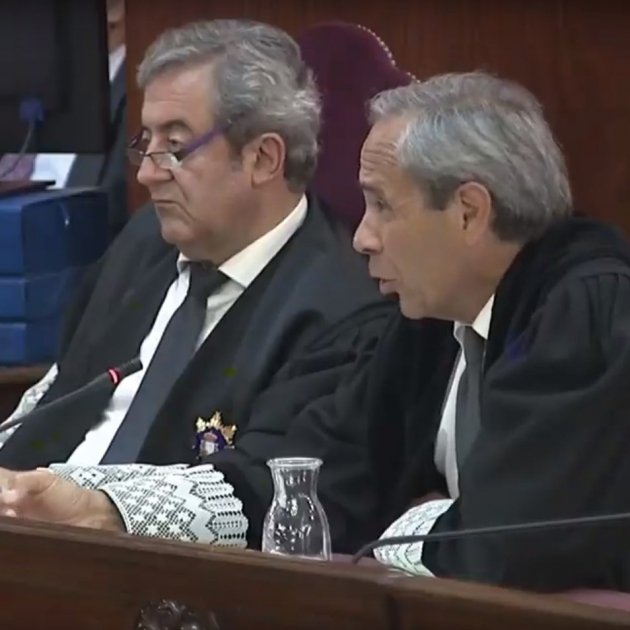Spanish public prosecutors have asked the Supreme Court to declare itself competent to review the granting of work leave to the Catalan political prisoners under article 100.2 of the penitentiary regulations. In a new initiative which could bring the Spanish high court - the court which convicted the pro-independence leaders - into the decisions on the type of prison regime they must follow, the prosecutors submitted to the judges that the type of leave which the nine have had over recent months is a "covert" open prison regime.
In a report, obtained this Tuesday by the daily El Mundo, the prosecutors who made the cases for rebellion and sedition against the Catalan pro-independence leaders - Jaime Moreno, Javier Zaragoza, Consuelo Madrigal and Fidel Cadena - argue that the permission to leave prison granted to the Catalan leaders "is similar to the granting of a covert third level (open) prison regime, since the effects derived from the application of this precept are not different from those that entail the application of the third level".
Asserting the impropriety of the granting of these leave permissions for a series of reasons - "some of them have even expressed their willingness to do it again", says the submission - the prosecutors conclude that there are sufficient reasons to “intervene in prison policy directly with the aim of altering the sentences decided in the verdicts and their effective enforcement.”.
"Unifying doctrine"
As the Supreme Court has made no ruling on this issue up till now, the question of work leave under article 100.2 has been resolved by Spain's provincial courts. However, the prosecutors now call on the Supreme Court to establish a "unifying doctrine" in the face of the wide range of criteria among the penitentiary judges of Catalonia.
The position of the prosecutors acting for the Supreme Court is opposed to that of the prosecutors in Catalonia, which have always directed appeals against the relaxation of the pro-independence leaders' prison regimes to the provincial court. However, in the recent case of an appeal against Carme Forcadell's work leave, a Lleida judge decided that the sentencing court should rule on the matter, and thus sent the case to the Supreme Court for its consideration. The high Spanish court, before ruling, called on the prosecutors to give their opinion, and this is the document which El Mundo has obtained.
This is the first time that prosecutors have directly asked the Supreme Court to assume jurisdiction over the flexibilization of the prison regime for the nine Catalan political prisoners.
